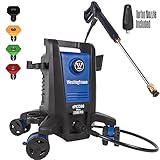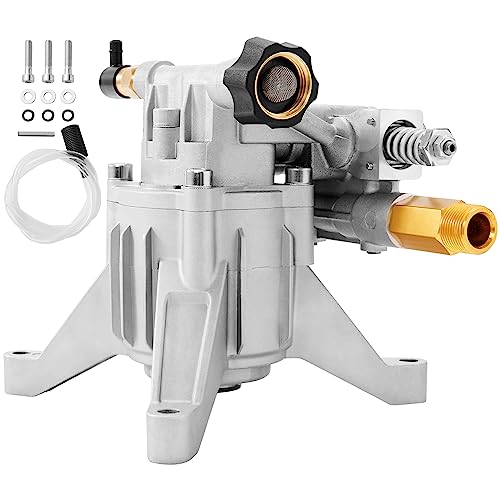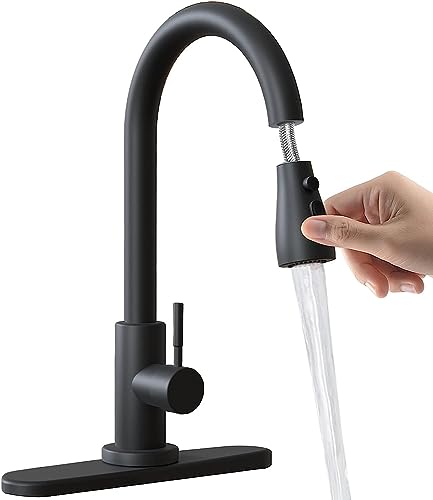Blog
How Many Gallons Per Minute Does A Pressure Washer Use

When it comes to using a pressure washer, one of the common questions that often arise is how many gallons per minute does a pressure washer use. The answer to this question is not as simple as it may seem. The amount of water that a pressure washer uses can vary depending on several factors including the size of the pressure washer, the nozzle size, and the pressure setting.
Generally, pressure washers are rated in gallons per minute (GPM), which refers to the amount of water that is delivered by the pressure washer in one minute. The GPM rating of a pressure washer is an important factor to consider when choosing a pressure washer for your specific needs. A pressure washer with a higher GPM rating will be able to deliver more water, which can be beneficial for larger cleaning tasks or for those that require a high amount of water pressure.
However, it is important to note that using a pressure washer with a high GPM rating can also result in using more water than necessary. It is recommended to use the lowest possible GPM rating that can effectively clean the surface or object you are cleaning. This not only helps to conserve water but also ensures that you are not using excessive pressure which can potentially damage the surface or object being cleaned.
In conclusion, the amount of water that a pressure washer uses can vary depending on the size, nozzle size, and pressure setting. It is important to consider the GPM rating of a pressure washer when choosing one for your specific needs, and to use the lowest possible GPM rating that can effectively clean the surface or object you are cleaning. By doing so, you can conserve water and ensure that you are using the pressure washer efficiently and effectively.
Understanding Pressure Washer Flow Rate
When it comes to pressure washers, the flow rate is an important factor to consider. The flow rate, measured in gallons per minute (GPM), determines how much water the pressure washer can deliver to the surface being cleaned.
A higher flow rate means that more water is being pushed through the pressure washer, resulting in a more powerful cleaning action. This can be beneficial for tackling tough stains or large areas. On the other hand, a lower flow rate may be more suitable for delicate surfaces or areas that require less water.
It’s important to note that the flow rate is separate from the pressure rating of a pressure washer. While the pressure rating (measured in pounds per square inch, or PSI) determines the force at which water is expelled, the flow rate determines the volume of water being used.
When choosing a pressure washer, it’s important to consider both the flow rate and pressure rating to ensure that you have the right combination for your specific cleaning needs. A pressure washer with a high flow rate and high pressure rating may be ideal for heavy-duty tasks, while a lower flow rate and pressure rating may be more suitable for lighter cleaning tasks or sensitive surfaces.
Understanding the flow rate of a pressure washer is essential for determining its cleaning power and effectiveness. By considering both the flow rate and pressure rating, you can select the right pressure washer for your needs and achieve optimal cleaning results.
Gallons Per Minute: What You Need to Know
When it comes to pressure washers, one of the most important factors to consider is the gallons per minute (GPM) rating. The GPM measurement tells you how many gallons of water the pressure washer can output in one minute.
The GPM rating is a crucial consideration because it directly affects the cleaning power of the pressure washer. The higher the GPM, the more water the pressure washer can deliver, which means it can clean larger areas more quickly and efficiently.
However, it’s important to note that a higher GPM doesn’t always mean better cleaning performance. The cleaning power of a pressure washer is determined by the combination of GPM and PSI (pounds per square inch), which measures the water pressure.
While a higher GPM can help cover larger areas, a higher PSI can provide more force to remove tough dirt and grime. So, when choosing a pressure washer, it’s important to find the right balance between GPM and PSI for your specific cleaning needs.
Another thing to consider is water conservation. If you are concerned about the amount of water you use, choosing a pressure washer with a lower GPM can help minimize water waste. However, keep in mind that a lower GPM may also result in a longer cleaning time if you need to cover a large area.
To determine the ideal GPM for your pressure washing needs, consider the size and type of surfaces you’ll be cleaning, as well as the level of dirt and grime you’ll need to remove. It’s also a good idea to consult the manufacturer’s recommendations to ensure you choose a pressure washer with the right GPM and PSI for the tasks at hand.
In conclusion, the gallons per minute (GPM) rating of a pressure washer is an important factor to consider when choosing the right machine for your cleaning needs. It directly affects the cleaning power and efficiency of the pressure washer, so finding the right balance between GPM and PSI is crucial. Consider your specific cleaning requirements and consult the manufacturer’s recommendations to make an informed decision.
Factors Affecting Pressure Washer Flow Rate
The flow rate of a pressure washer, measured in gallons per minute (GPM), can be influenced by several factors. Understanding these factors is crucial in determining the efficiency and effectiveness of your pressure washer.
Nozzle Size
The size of the nozzle used in a pressure washer can have a significant impact on the flow rate. Generally, a larger nozzle size will allow for a higher flow rate, while a smaller nozzle will restrict the flow, resulting in a lower GPM.
Pressure Setting
The pressure setting on your pressure washer can also affect the flow rate. Increasing the pressure setting will typically result in a higher flow rate, whereas decreasing the pressure setting can reduce the flow.
It’s important to note that while increasing the pressure may seem like a good idea to improve cleaning power, it can also lead to water wastage. A balance between pressure and flow rate must be maintained to ensure efficient cleaning.
Hose Length and Diameter
The length and diameter of the hose used with your pressure washer can impact the flow rate. A longer hose or a smaller diameter can lead to a decrease in flow rate due to increased friction and resistance within the hose. Conversely, a shorter hose or a larger diameter can improve the flow rate.
It’s recommended to use the appropriate hose length and diameter based on the requirements of your pressure washer to maintain optimal flow rate and cleaning performance.
These factors should be considered when using a pressure washer to ensure that you are getting the desired flow rate for your cleaning tasks. Understanding how these factors impact the flow rate will enable you to make informed decisions and achieve optimal results.
Choosing the Right Pressure Washer for Your Needs
When it comes to choosing a pressure washer, there are a few key factors to consider. The first is the intended use for the pressure washer. Are you planning on using it for household tasks, such as cleaning your deck or washing your car? Or do you need a more heavy-duty option for commercial or industrial purposes?
Next, you’ll want to think about the pressure and flow rate of the pressure washer. Pressure is measured in pounds per square inch (PSI), and the flow rate is measured in gallons per minute (GPM). The pressure determines how forcefully the water will spray, while the flow rate determines how quickly the water will flow.
For most household tasks, a pressure washer with a PSI of around 1,500 to 2,000 and a GPM of around 1.5 to 2.0 should be sufficient. This will provide enough power to tackle typical cleaning jobs without being overpowering.
However, for more heavy-duty tasks such as removing stubborn dirt and stains, or for commercial and industrial use, you may need a pressure washer with a higher PSI and GPM. A pressure washer with a PSI of 2,000 to 3,000 and a GPM of 2.0 to 4.0 would be better suited for these types of tasks.
Another important consideration is the type of fuel the pressure washer uses. Some models run on electricity, while others run on gasoline or diesel. Electric pressure washers are generally more lightweight and easier to maneuver, but they may not have as much power as their gas-powered counterparts.
Lastly, you’ll want to think about the additional features and accessories that come with the pressure washer. Some models have adjustable nozzles or different spray patterns, which can be helpful for tackling different types of cleaning tasks. Other features to look for include a built-in detergent tank or a hose reel for easy storage.
By considering these factors and matching them to your specific needs and budget, you can select the right pressure washer that will get the job done effectively and efficiently.
Questions and answers
How many gallons per minute does a pressure washer typically use?
A typical pressure washer uses around 1.5 to 2.5 gallons per minute (GPM).
Is a higher GPM better for a pressure washer?
Not necessarily. While a higher GPM can result in faster cleaning, it also means more water consumption. Choosing the right GPM depends on the specific cleaning task and the water availability.
What happens if a pressure washer uses too much water?
If a pressure washer uses too much water, it can put a strain on the water supply, increase water bills, and waste water unnecessarily. It’s important to find the right balance between water efficiency and cleaning effectiveness.
Can I adjust the GPM on a pressure washer?
Some pressure washers allow you to adjust the GPM by using different nozzles or settings. However, not all models have this feature, so it’s important to check the specifications of the pressure washer before purchasing.
Recent Posts
-
How To Take A Water Pump Off A Pressure Washer
May 18, 2024 -
What’s The Going Rate To Pressure Wash A Sidewalk
May 18, 2024 -
Where Does The Hose Go On A Homdox Pressure Washer
May 18, 2024 -
What Kind Of Oil Goes In A Simpson Pressure Washer
May 18, 2024















